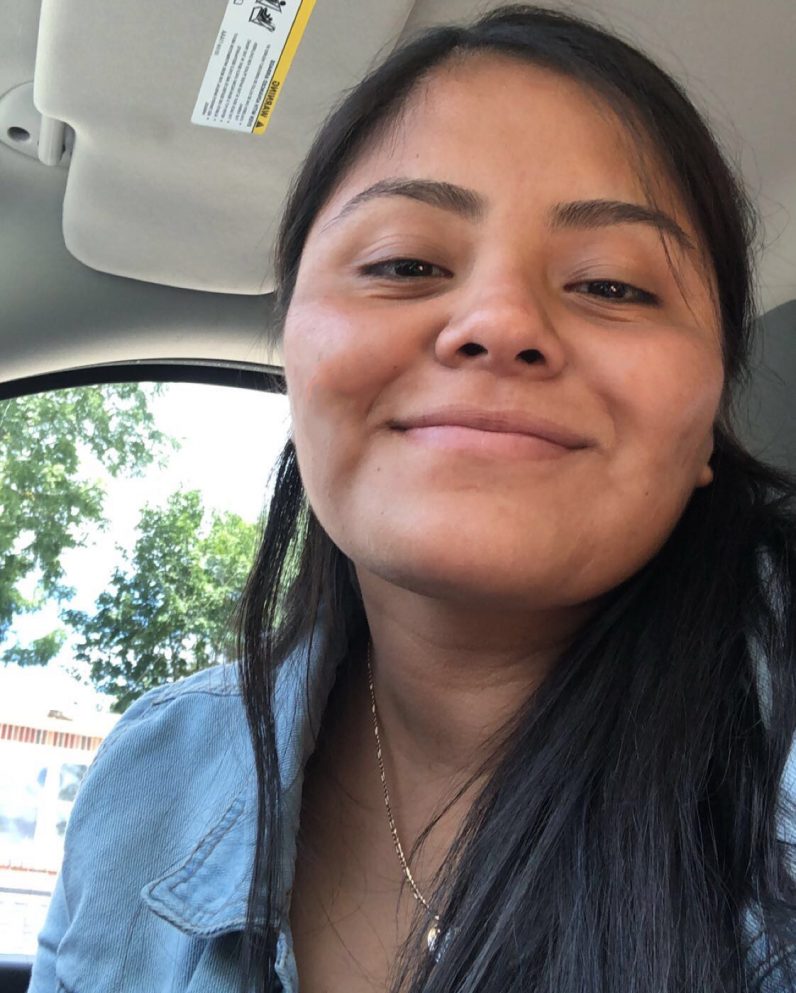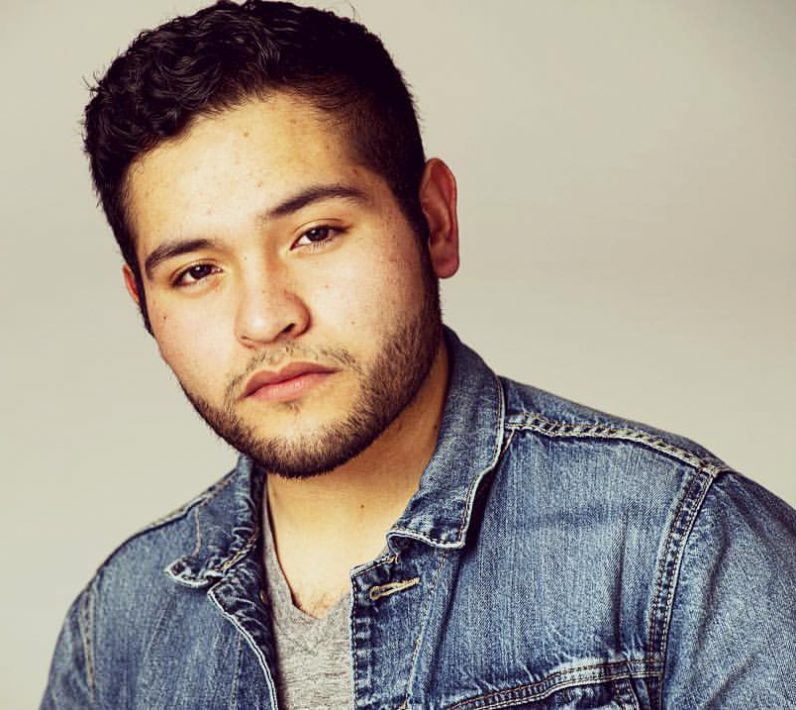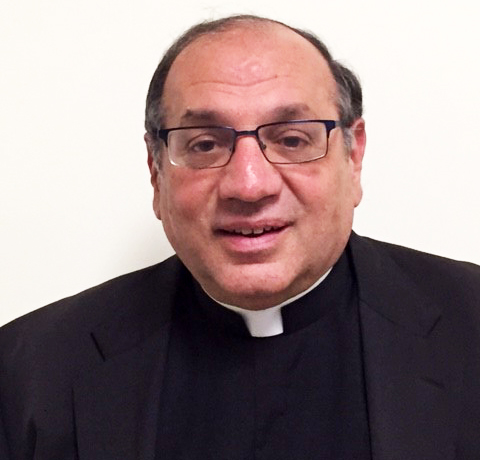
DACA recipient Amayrani Hiduelgo, a parishioner at St. Patrick in Norristown, said she feels she “can breathe” after June 18 Supreme Court decision upholding the program, which provides two years of protection (subject to renewal) for qualified undocumented youth brought to the U.S. as children. (Photo courtesy of Amayrani Hiduelgo)
Local DACA recipients say they’re relieved by a June 18 Supreme Court decision to uphold a program that has been life-changing.
“I cried,” said Amayrani Higueldo, a member of St. Patrick Parish in Norristown. “I thought, OK, I can breathe a little and continue with my nursing studies.”
Now 22, Higueldo and her family relocated to Montgomery County from Acapulco, Mexico 15 years ago. In recent decades, the once popular tourist resort has ranked among Mexico’s most dangerous cities due to the expansion of ruthless drug cartels. Some of Higueldo’s childhood friends were killed in the gang-like warfare; the area’s beaches and hotels are routinely patrolled by guards with semiautomatic weapons.
Established by President Obama in 2012, DACA (Deferred Action for Childhood Arrivals) was intended to protect youth such as Higueldo from deportation. Brought to the U.S. as kids by families fleeing poverty and violence, she and more than 643,000 other currently registered DACA recipients (who must meet strict eligibility criteria) have been able to work, study and even serve in the armed forces.
DACA status expires after two years, subject to renewal, and the program does not provide a path to citizenship. Since 2001, various versions of the DREAM Act (Development, Relief and Education for Alien Minors Act) have attempted to grant such legal status; all of have failed to pass in Congress, despite several polls showing widespread public support for the initiative.
(Related: Read Father Gus Puleo’s commentary on the June 18 Supreme Court decision regarding DACA.)
Although he had on occasion described DACA recipients as “good, educated and accomplished young people,” President Trump moved to end the program through a 2017 executive order. Last week, a five-four Supreme Court majority labeled the move as “arbitrary and capricious” in its execution.
[hotblock]
Yet the reprieve is just that. With DACA unchanged, and the Trump administration weighing options on how to legally rescind it, “we still have so much work to do,” said Angel Sigala, a 24-year-old actor and St. Patrick parishioner.
On the margins, but resilient
Like Higueldo, Sigala came to the U.S. from Mexico as a child. His father had moved to Norristown two years prior, and Sigala, along with his mother and sister, followed as the family sought economic opportunity and a better quality of life.
Arriving as a 10-year-old, Sigala quickly embraced educational and cultural resources he couldn’t access in Mexico.
“My parents had to pay a lot of money for me to attend private school in Mexico, and public education here was better than private there,” said Sigala, a Temple University graduate who has appeared in several regional theater productions.

Actor Angel Sigala, a DACA recipient and member of St. Patrick Parish in Norristown, welcomed a June 18 Supreme Court decision to retain the program, but said “we still have so much work to do” in addressing the need for immigration reform. (Photo courtesy of Angel Sigala)
Hard work in the classroom, on the job and in the community have made DACA recipients some of “the best kids” in American society, said Father Gus Puleo, pastor of St. Patrick.
Of the approximately 200 DACA recipients in his parish, “close to 100%” are employed, and 50% of them are also students, Father Puleo said, adding that the youth attain work and education despite “a playing field that’s not fair.”
In fact, applying for a driver’s license, college or a job often triggers in DACA recipients a painful awareness that despite being in many respects American, they’re still on the margins of society.
“I turned 16, and my classmates started getting their driver’s permits and licenses, and they began working,” said Sigala. “I couldn’t really do any of those things because of a lack of a Social Security number.”
Higueldo’s experience was similar. “I don’t think I was ever fully aware … until it was time to apply for college, and I didn’t have a Social Security number,” she said. “My whole life, I wanted to go to college to thank my parents for the sacrifices they’d made. And then that moment came.”
Sigala admitted that he was initially “angry and disappointed” when he realized the implications of his immigration status.
“I blamed my parents for changing and shifting my life in such a dramatic manner,” he said.
[hotblock2]
Sigala realized that his mother and father had sought freedom and security for their children, and he said his resentment “quickly evolved” into a determination to pursue his goals.
That resilience is characteristic of DACA recipients, said Father Puleo, noting that the youth he sees often earn “4.0 averages in high school, knowing they can’t necessarily go to college.”
A former university professor, Father Puleo launched an SAT preparation course at his parish, something many DACA recipients would not otherwise be able to afford.

With some 200 DACA youth in his parish, Father Gus Puleo, pastor of St. Patrick in Norristown, has long advocated for comprehensive immigration reform. (Photo courtesy of St. Patrick Parish, Norristown)
Once admitted to college, DACA recipients usually have to work their way through school, while remaining ineligible for financial aid.
In some cases, they face higher tuition. Until a year ago, Higueldo, a nursing student at Montgomery County Community College, was paying an out-of-state tuition rate because her DACA status wasn’t yet recognized for residency.
“I was paying $1200 per class, instead of the in-county rate of $500,” she said. “It was more than double, and I was struggling.”
A catalyst for immigration reform
With the Supreme Court’s ruling on DACA, Sigala – who has been supporting recent efforts for racial equality — said he’s committed to “fighting for the betterment of (his) community in this country.”
That’s a battle in which he hasn’t always felt welcome. Like many DACA youth, Sigala lives between two worlds, connected to both, but prevented by a number of factors from fully integrating into either.
“My culture is Mexican, but I have built a life here, and now America has become a home for me,” he said. “Unfortunately, the world … won’t let me forget that I am still an immigrant. I found myself broken, fighting for a nation that doesn’t necessarily want me here.”
At one point, Hiduelgo considered moving back to Mexico for college, but returning to their nations of origin isn’t a viable option for DACA youth, said Father Puleo.
“If these kids are deported, they’re doing to go to a country where they can speak some Spanish, but not formally,” he said. “They’ve become American in many different ways, culturally and linguistically.”
The DACA decision, which he described as “landmark,” should serve as “a catalyst for us to look at comprehensive immigration reform,” he said.
Without that, families themselves are under attack, he said, since parents and children have different immigration statuses that place them at varying degrees of risk for deportation.
Both Hiduelgo and Sigala have siblings who were ineligible for DACA.
“My younger sister wasn’t yet 16 when DACA was terminated by Trump,” said Sigala. “So she is still very much in danger.”
“I have a little sister who wanted to work, to go to college,” said Hiduelgo. “She’s where I was at a few years ago.”
Father Puleo denounced such imbalances as an attempt “to put a wedge between family members.”
He believes that educating Americans about DACA recipients, and about “what’s happening in the broader sense” of immigration policy, is essential.
With an estimated 29,000 in the healthcare professions, DACA workers have been critical to the nation’s COVID-19 response, he said.
A recent analysis of Census Bureau data found that DACA recipients and their households pay significant taxes each year: $5.7 billion in federal and $3.1 billion in state and local. In addition, they bolster Social Security and Medicare through payroll taxes.
“If people really knew the full situation, they would be sympathetic” to the plight of DACA recipients, said Father Puleo.
Sigala agreed.
“Look at me,” he said. “I am an example of an immigrant who just wants to make this world and this country a better place.”
PREVIOUS: What to do with old electronics? St. John Chrysostom has the answer
NEXT: State’s ‘green’ phase allows more in pews, but precautions continue



Share this story